Alexander, the Hellenistic World & Greek Philosophers
1/20
There's no tags or description
Looks like no tags are added yet.
Name | Mastery | Learn | Test | Matching | Spaced |
|---|
No study sessions yet.
21 Terms
Battle of Chaeronea
Battle near Thebes in 338 BCE where the Macedonians defeated the Greeks from the various Greek city-states and made them join an alliance against Persia.
Battle of Granicus River
Alexander's first battle with the Persian Empire; he nearly lost his life as he charged into the armies of the Persian Satraps. (334 BC)
Aristarchus
Greek scientist who first stated that the Earth revolved around the Sun, and rotated on its axis.
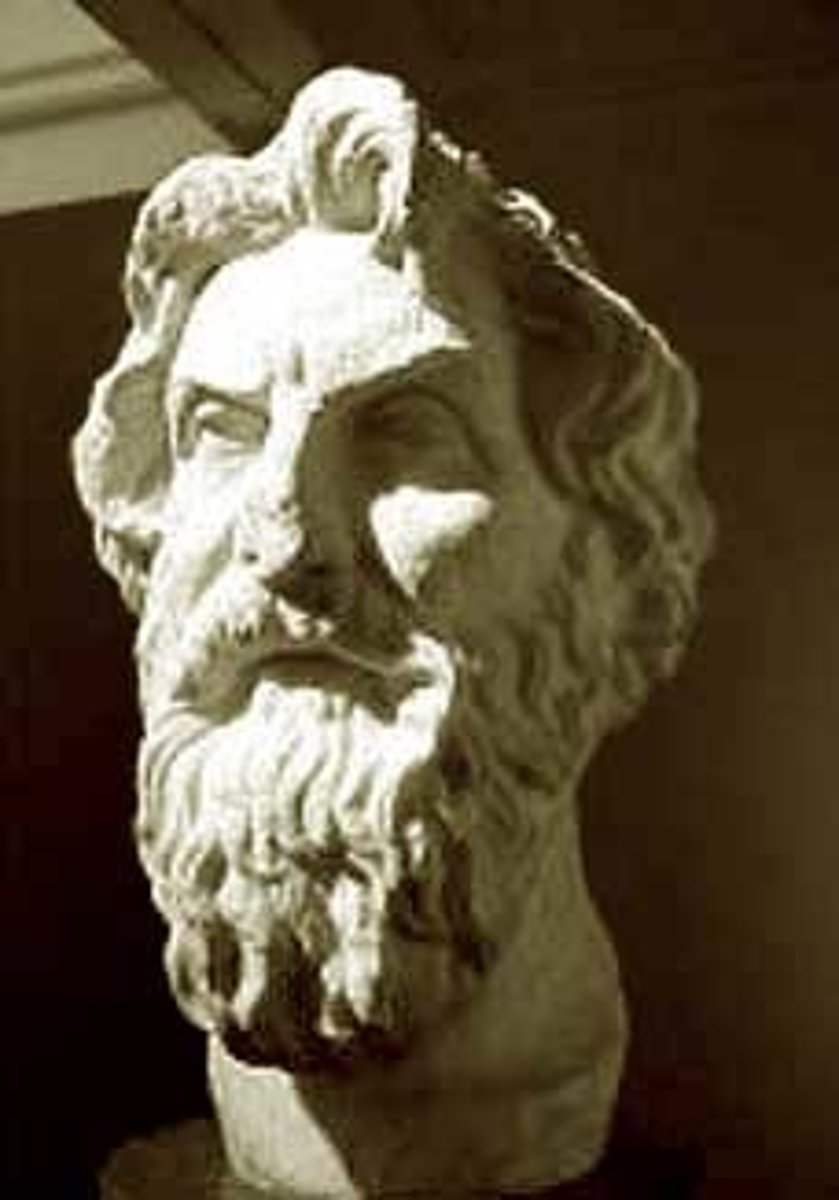
Philip of Macedon
Father of Alexander;
unified the warring Greek city-states
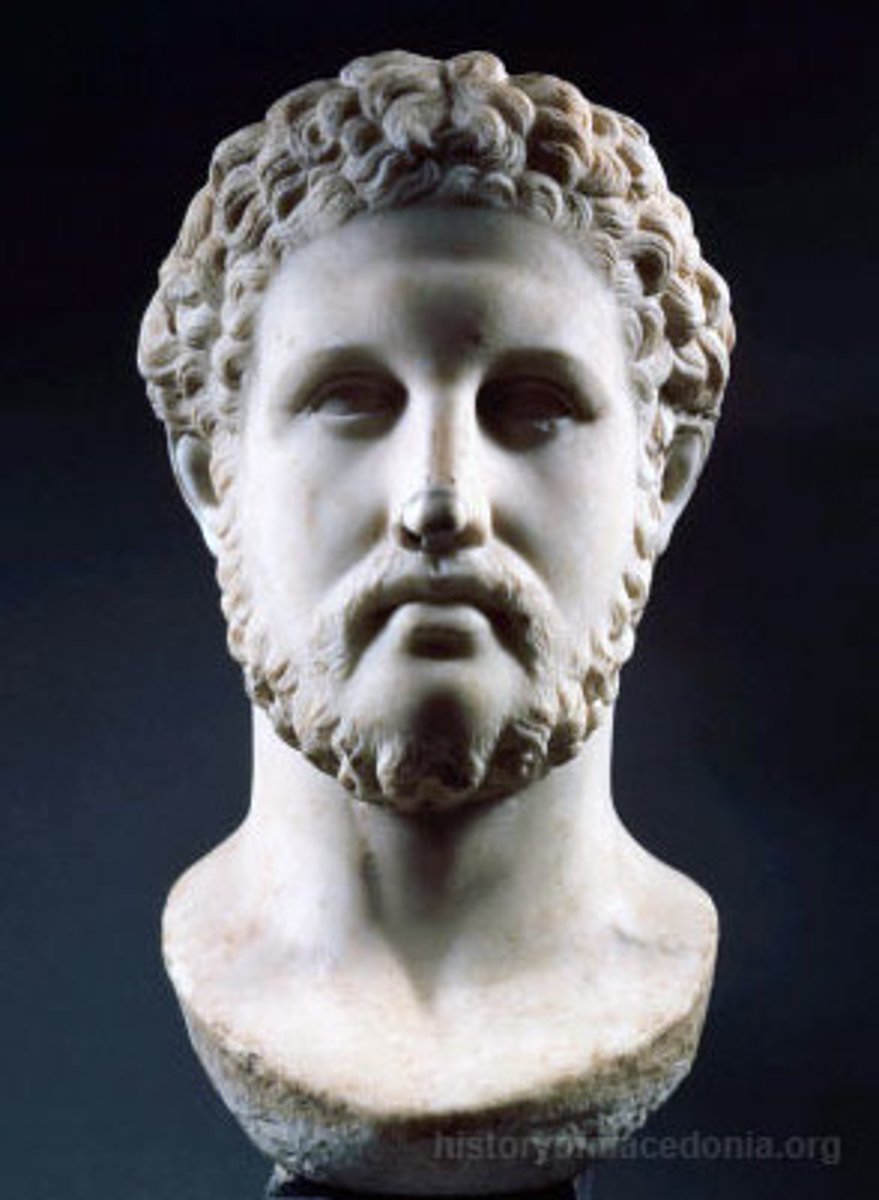
Alexander the Great
King of Macedonia who conquered Greece, Egypt, and Persia
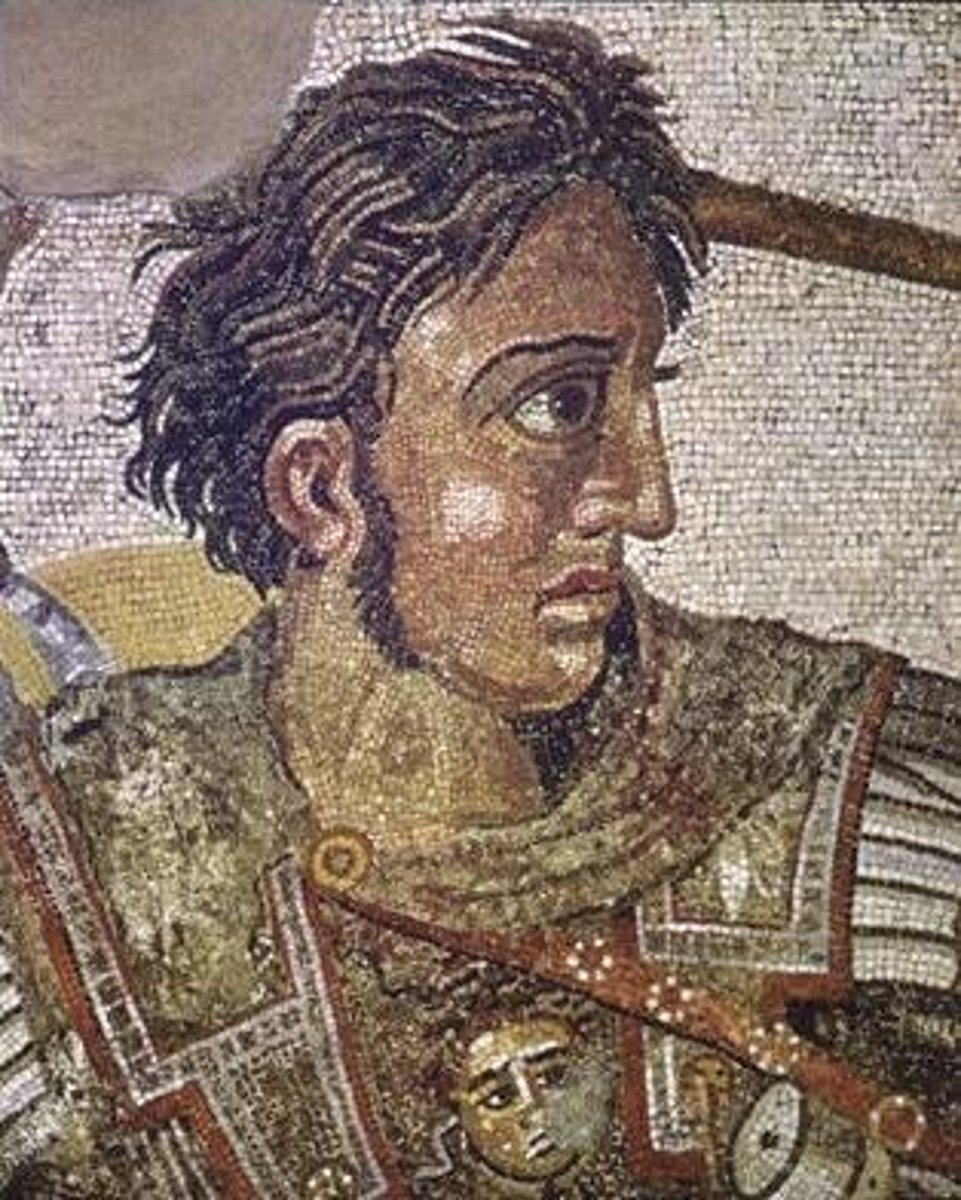
Battle of Issus
* Alexander emerged victorious when Darius was forced to abandon his army and flee (333 BC)
* Captured Darius' family.
Hellenistic Culture
Greek culture blended with Egyptian, Persian and Indian ideas, as a result of Alexander the Great's Empire.
Hipparchus
First person to describe location using a mathematical grid; proposed a geocentric theory adopted by Ptolemy.
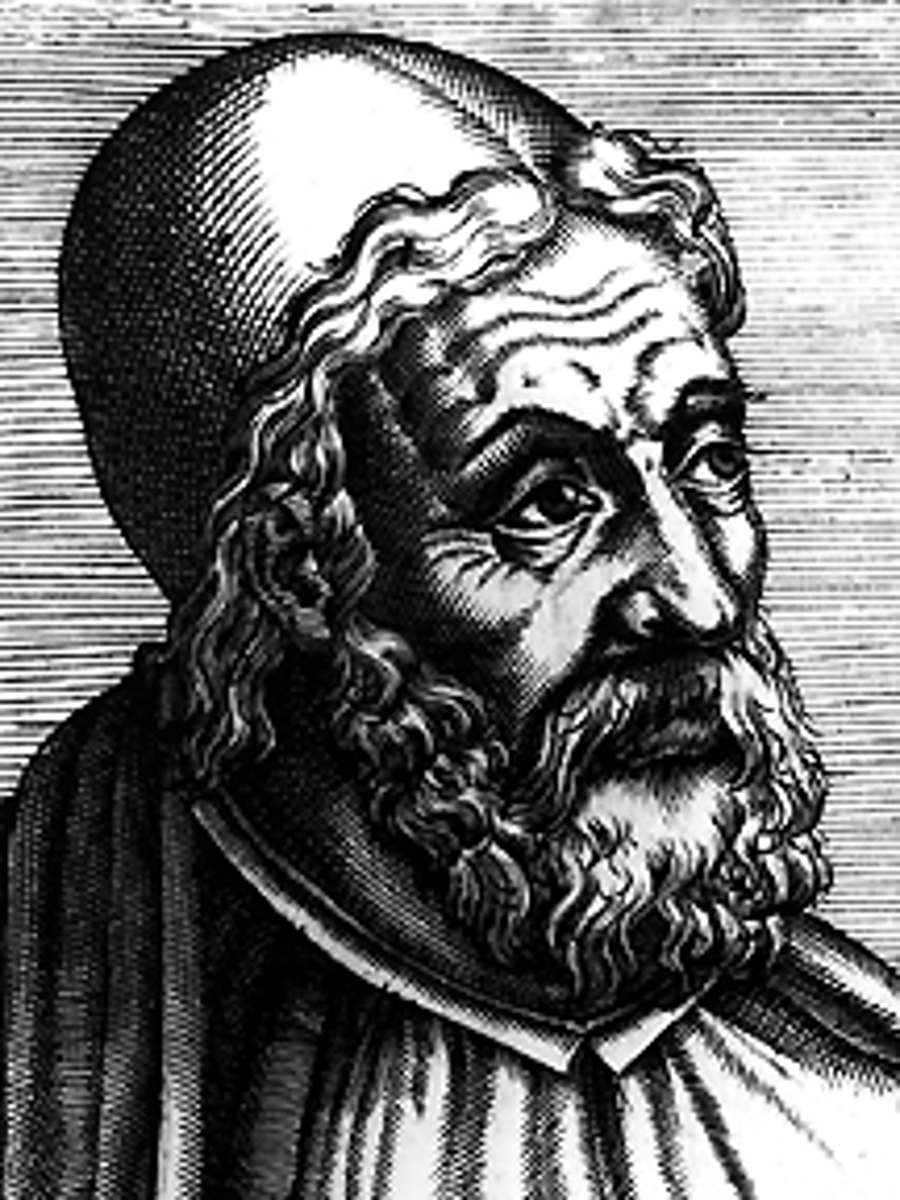
Archimedes
Greek mathematician and inventor. He wrote works on plane and solid geometry, arithmetic, and mechanics. He is best known for the lever and pulley.
Specific gravity... "Eureka!"
Hero of Alexandria
* Five simple machines
* steam-powered device
Eratosthenes
Greek mathematician and astronomer who estimated the circumference of the earth and the distances to the moon and sun (276-194 BC)
Epicureanism
Philosophy founded by Epicurus in Hellenistic Athens; taught that happiness through the pursuit of pleasure was the goal of life
Stoicism
* Founded by Zeno
* Emphasis on ethics, living in harmony with the will of God
* Brotherhood of all mankind
* Public service was noble
* adopted by Romans
Cynicism
* Criticized corruption in society; idealized a "simple life."
* Diogenes: lived in tub on beach; went about with a lantern looking in vain for an honest man.
The Skeptics
This group of Hellenistic philosophers questioned any assumptions and had a goal of achieving peace of mind.
Hellenistic Art
A mix of art styles from different civilizations. Dramatic, emphasis on emotion, violent action, heightened sense of realism
Battle of Gaugamela
Alexander's decisive victory over Darius III. Although outnumbered, Alexander's superior tactics and army earned the victory that would lead to the fall of the Achaemenid Dynasty. (331 BC)
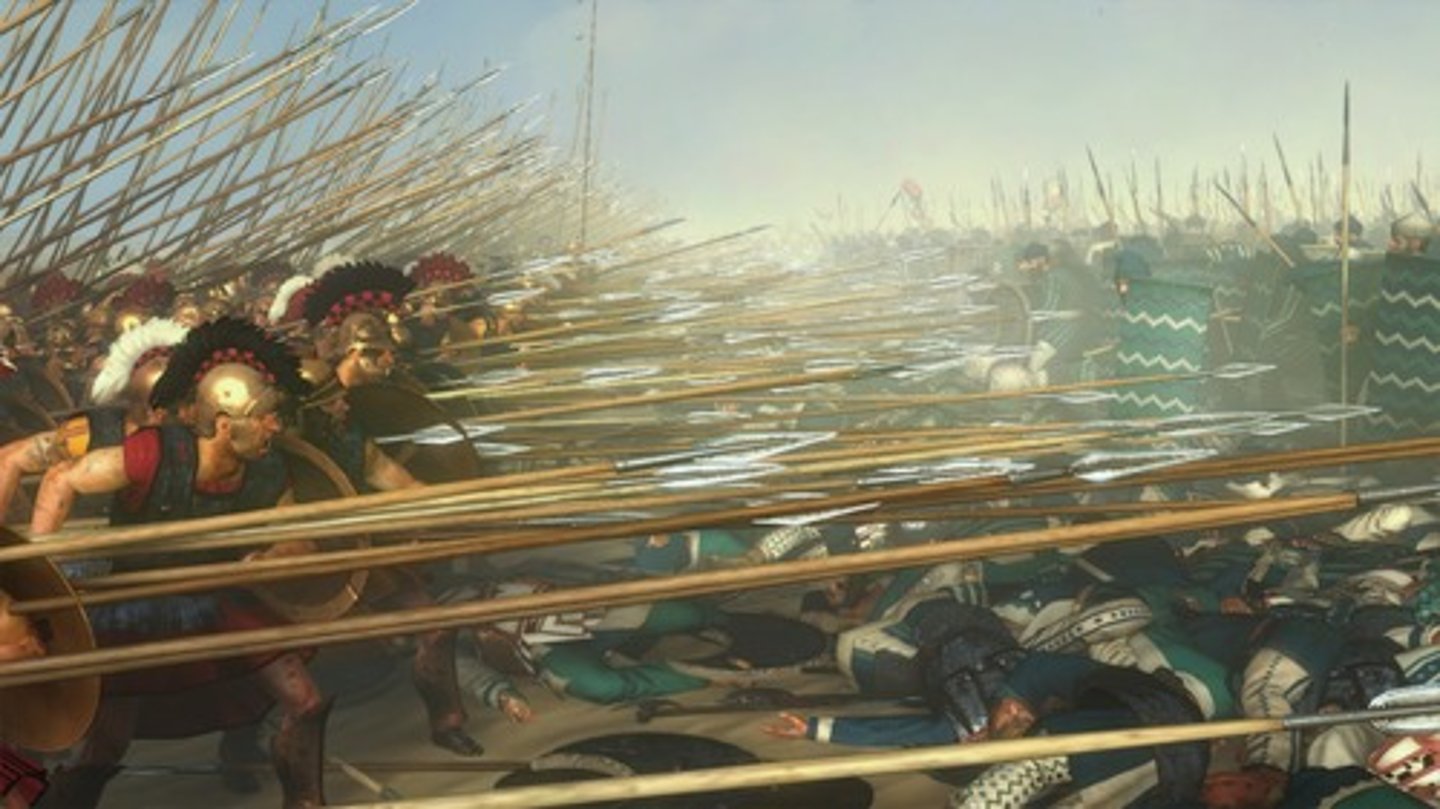
Socrates
An Athenian philosopher who thought that human beings could lead honest lives and that honor was far more important than wealth, fame, or other superficial attributes.
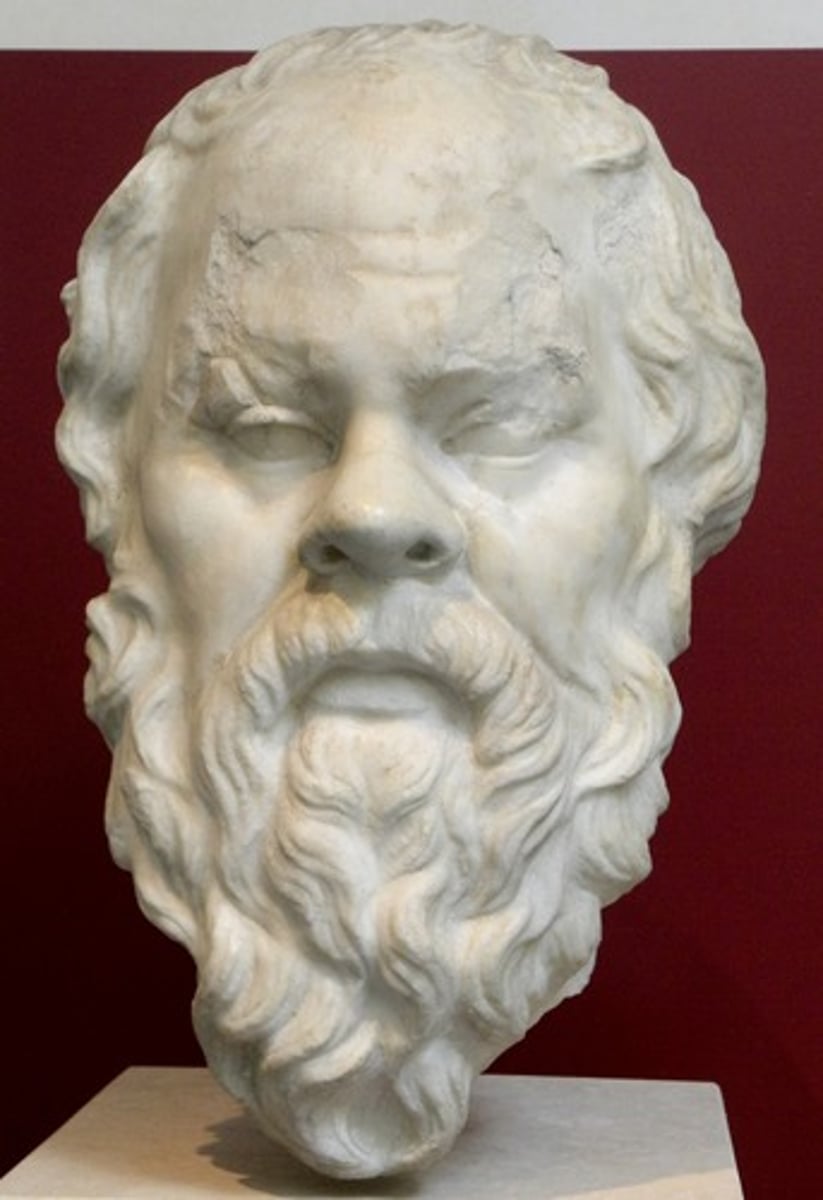
Plato
Was a disciple of Socrates whose cornerstone of thought was his theory of Forms, in which there was another world of perfection.
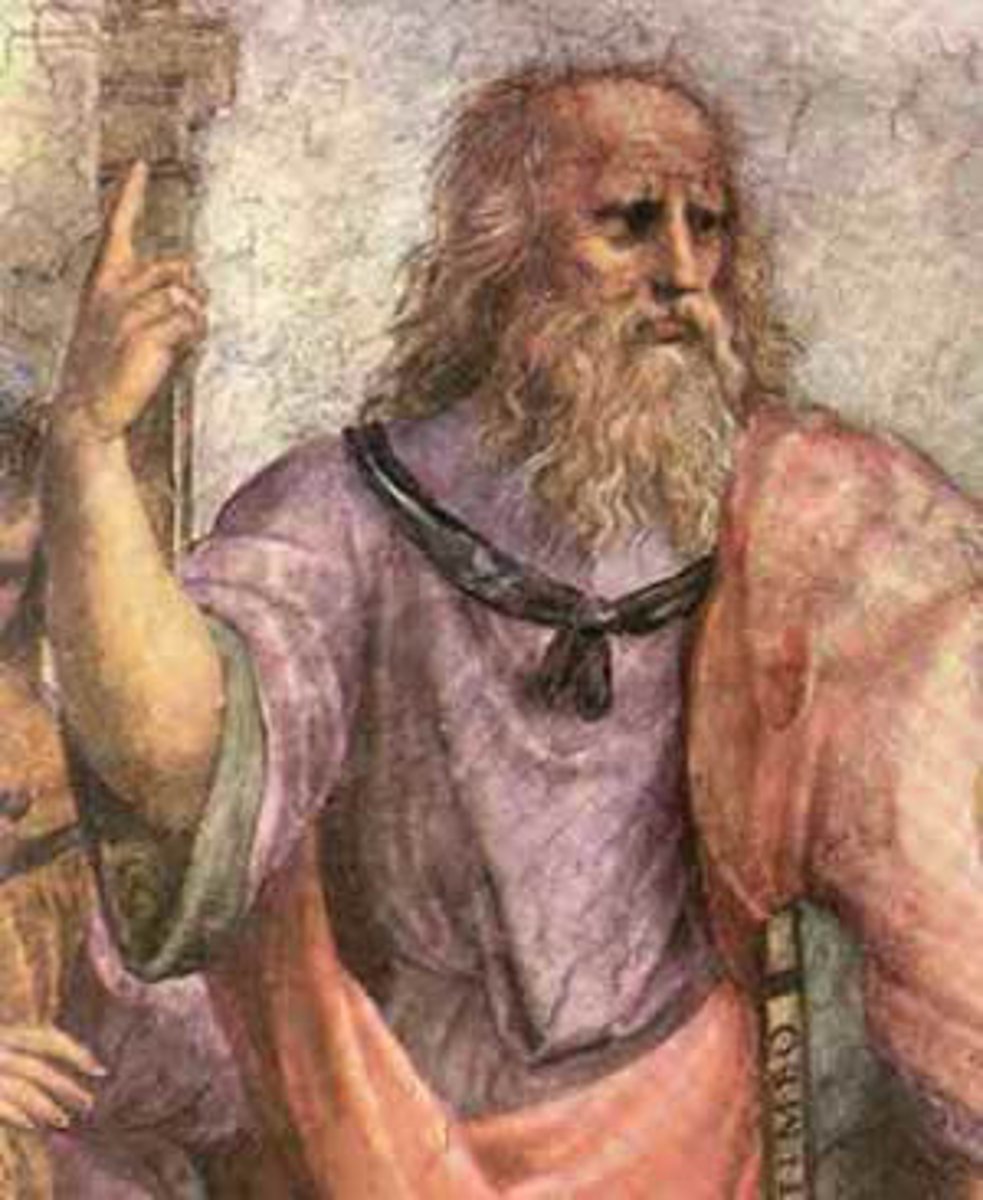
Aristotle
* Greek philosopher
* A pupil of Plato, the tutor of Alexander the Great
* Developed a system of empirical observation and rational inquiry.
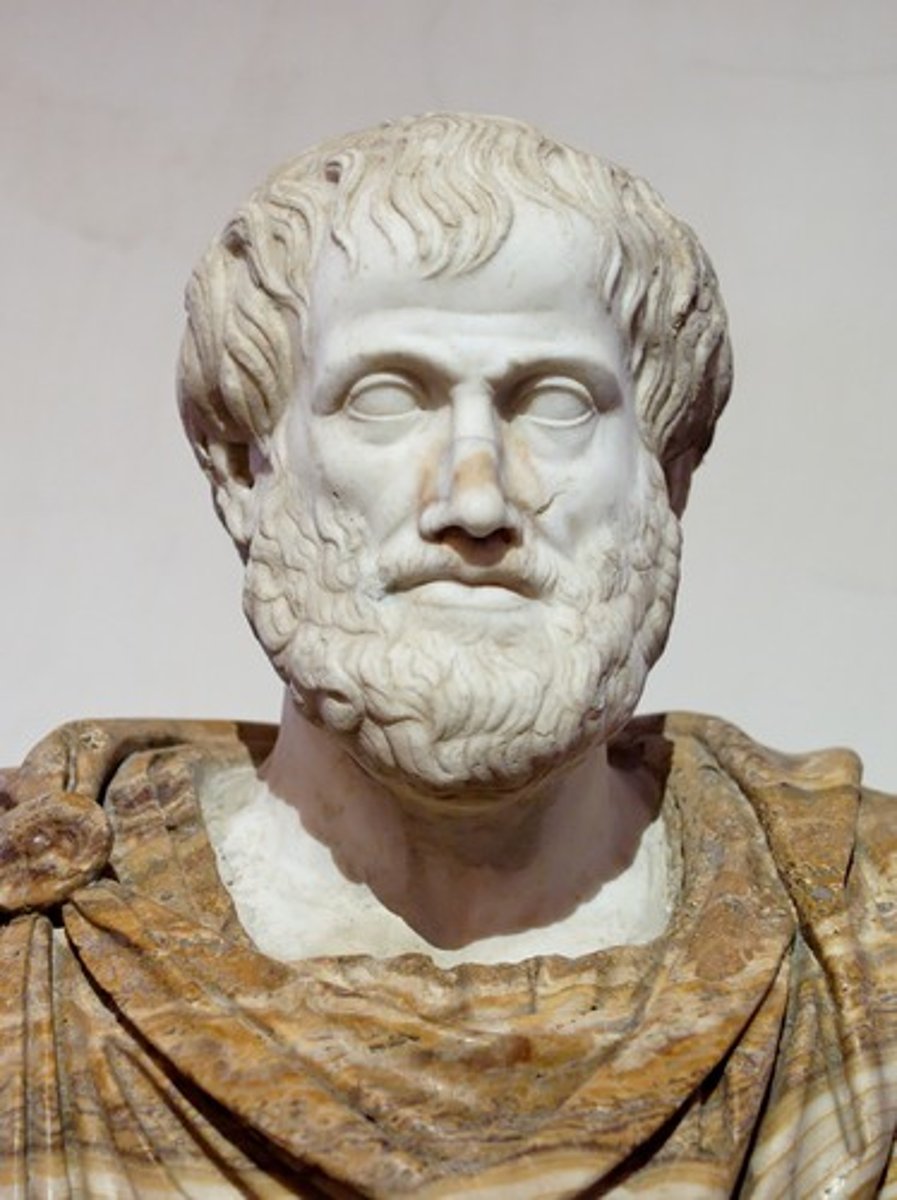
Still learning (20)
You've started learning these terms. Keep it up!